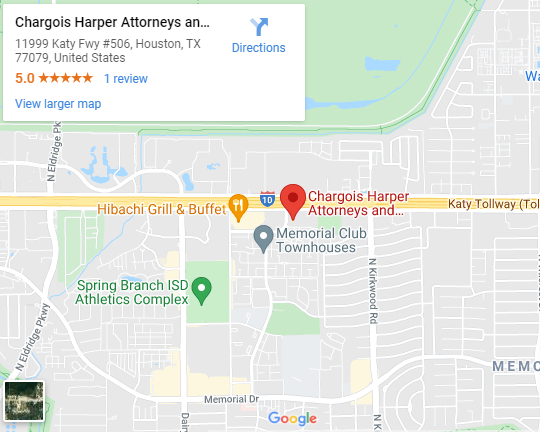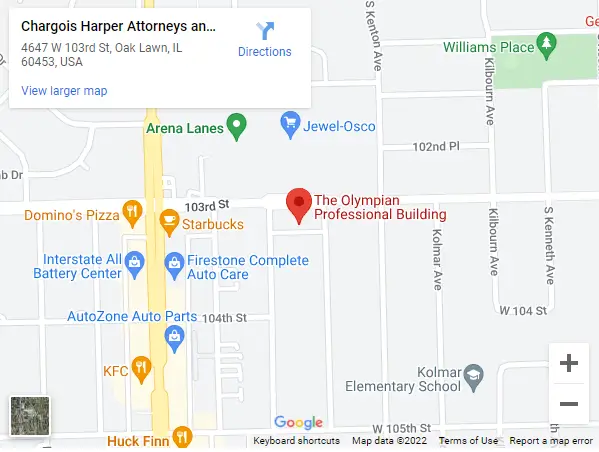Probate With No Will
Houston Attorney for Probate Without Wills
It is a given knowledge that when someone dies, they have a will that indicates all their last wishes, from how their estate should be managed to how the estate assets will be distributed to the beneficiaries. However, there are instances wherein an individual passes away without a will. Dying without a will is known as dying intestate.
Depending on which state you’re in, laws regarding dying intestate vary. These laws describe what should be done to assets and how they will be distributed in the absence of a will. Intestate succession laws control how the probate court handles your property should you die intestate.
Before deciding on probate with no will, one must first understand the ins and outs of probate. Experienced wills probate attorneys can explain what the benefits of probate are if a will isn’t present, what role the court plays in probate without wills, and the steps one must take in order to start probate without a will.
Probate can be a complicated matter that shouldn’t be handled alone. The duties alone are harrowing and take up much of your time, energy, and money, leaving you without much to grieve for your deceased loved one. Don’t go through probate alone. Enlist the assistance of Houston, TX probate attorneys who can walk you through the entire probate process.
How Does One Probate Without Wills?
Probate is defined as the legal process of transferring a deceased person’s belongings after death. It is through a will that people formalize their intentions at the time of their death. When a person dies, a personal representative has the task of overseeing the estate and performing duties such as distributing assets and closing the estate. In the event that someone has died intestate, one can begin by filing a petition in the probate court.
Here is a step by step process of probating without wills.
- The decedent’s assets must first be reviewed to see if it qualifies for small estate probate exemption. A value for the estate needs to be established with a list of properties needed for distribution.
- Determine the county where you’ll file for probate
- Have a certified copy of the death certificate of the decedent ready along with request forms for Petition of Letters for Administration.
- Inform everyone involved that you are probating the estate through a Notice of Petition to Administer Estate which serves as a notice to all creditors. Creditors have four months to file their claims.
- Petitions are usually granted unless a more suitable executor is present.
Probate with or without wills is a lengthy and confusing process that many do not wish to undertake. However, if the estate must be probated, it is wise to get in touch with probate attorneys who are well-versed in the practice and can help you make wise decisions to honor your loved one’s legacy.
What Are the Benefits of Probate without Wills?
While most of us have the notion that probate is a huge hassle, time-consuming and drain your savings, if one dies without a will, it is unimaginable what all their belongings would go through. Probate courts exist to provide a decision on what route to take should an individual die intestate. It is worth noting that probate has the following benefits:
- Cuts off Creditor Claims-Probate can reduce the time creditors may file claims.
- Resolves Property Claims Conflicts- Intestate succession laws determine who takes first in an estate and hence, lessens estate disputes.
- Title Transfers-Unless joint ownerships exist, probate enables easier title transfers.
To know more about how probate can be beneficial for an intestate decedent’s properties, it is wise to consult with probate attorneys before making any big decisions.
What is the Court’s Role?

Probate courts are divisions that deal with probate. It is tasked to oversee that the probate process is legally followed and to resolve any disputes that get in the way of a smooth execution of probate, such as ensuring the inheritance goes to the rightful beneficiaries. The court is also responsible for appointing estate administrators, usually the spouse or next of kin.
What Happens If You Die Without A Will?
Dying without a will renders an individual intestate. The laws of your particular state will dictate the course of action to be taken on your properties. Properties in question include bank accounts and real estate. Another determinant of dying intestate is your marital status. For those who die unmarried without a will, either your parents or siblings will receive your entire estate If you passed away unmarried but with children, your children receive the estate.
If you are married, on the other hand, depending on the agreement, your estate will go to the surviving spouse or split between your surviving spouse and your children. Domestic partnerships are a topic of debate and it depends on the state you live in since not all states acknowledge domestic partnerships for estate planning.
What Is The Uniform Probate Code?
The Uniform Probate Code is the starting point for most probate laws. Under this code, close relatives inherit first before distant relatives. The others who are entitled to receive the estate include the surviving spouse, descendants, parents, and grandparents. If none of the above wish to take the estate, the estate escheats or goes to the state by default.
What are the Intestate Laws in Texas?
As previously mentioned, probate laws vary from state to state and it is expected that Texas will have its own set of laws regarding dying without wills. If you pass without a will in Texas, many valuable assets such as life insurance, payable on death bank accounts, and real property will not be affected by intestate laws. These assets will be passed on to surviving relatives regardless of whether you have a will or not.
The laws vary from state to state and if you are facing probate in Texas, the best move would be to seek legal counsel from experienced probate attorneys who are well-versed in estate plans and can guide you through probate law.
Seek Legal Advice from Probate Attorneys
Probate in itself is a complicated business that sucks the life, time, and money out of anyone which is why it isn’t recommended to face this harrowing journey alone. This can be doubly complicated if the individual in question dies without a will. Ensure that your loved one’s estate gets handled properly even without a will. Getting in touch with Houston, TX probate attorneys from Chargois Harper is the smartest move you can make if you are currently dealing with probating a will. Contact Chargois Harper and get in touch with estate planning attorneys from the law firm that can help represent you, guide you through the probate process and estate administration, and ensure that the rightful heirs get the share they deserve.

You can count on us to protect your interests and resolve your legal concerns in Texas & Illinois.
Houston Office
11999 Katy Freeway #506
Houston, TX 77079
Illinois Office
4647 W. 103rd Street, Oak Lawn Illinois 60453
Get Help From Our Illinois & Texas Attorneys
All the information on this website – www.chargoisharper.com – is published in good faith and for general information purposes only. Chargois Harper Attorneys and Counselors at Law does not make any warranties about the completeness, reliability and accuracy of this information. Any action you take upon the information you find on this website (Chargois Harper Attorneys and Counselors at Law), is strictly at your own risk. Chargois Harper Attorneys and Counselors at Law will not be liable for any losses and/or damages in connection with the use of our website.
Copyright © 2024 Chargois Harper Attorneys and Counselors at Law - All Rights Reserved. | Powered by Advantage Attorney Marketing & Cloud Solutions



